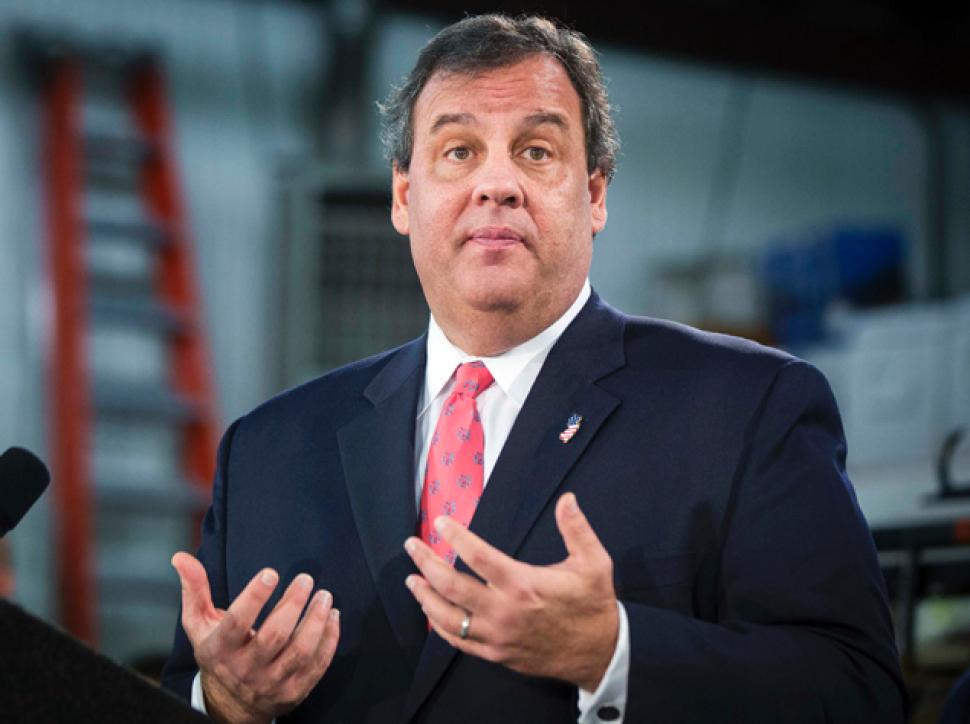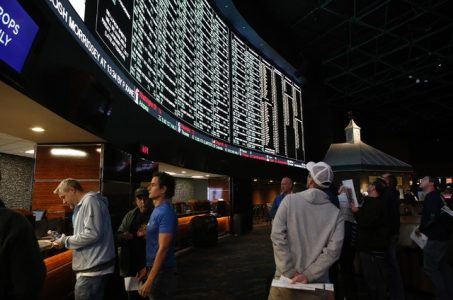Chris Christie Allows New Jersey Sports Betting Despite Ban
Posted on: September 8, 2014, 08:29h.
Last updated on: September 8, 2014, 08:50h.

New Jersey sports betting might not be such a pipe dream after all. While the state has lost in federal court over its plan to regulate and license sports betting at casinos and racetracks throughout the New Jersey, some officials point to a glimmer of hope in the rulings: the fact that they found that there’s nothing in New Jersey law itself that would stop those venues from offering bets on their own.
On Monday, that’s exactly what Governor Chris Christie used to issue a directive allowing racetracks and casinos to start offering sports betting without fear of civil or criminal liability. Governor Christie cited the previous court rulings to say that such actions were not prohibited under New Jersey law, and that federal law only prohibits the state from regulating the activity.
Christie Changes Tune on Federal Ruling
“Based on the arguments of the sports leagues and the United States Department of Justice, the 3rd Circuit has already ruled that New Jersey can carry out sports wagering as described in today’s statewide directive,” stated a statement from the Governor’s office. “The motion simply would clarify and formalize that authority and give clear guidance to casinos and racetracks waiting to open a sports pool in New Jersey.”
The decision seems to mark a sudden turnaround for Christie on the issue. Initially, while clearly disappointed with the court ruling, the governor appeared ready to give up on the issue when the US Supreme Court refused to hear the case. Last month, he even vetoed a bill that would have worked to circumvent the ruling and allow for betting to go forward.
In addition to the directive, Christie and the state of New Jersey have also filed a motion in federal court seeking clarification over the ruling that blocked the licensing program that New Jersey had tried to put into place for sports betting. That program was put into place after voters in the state showed strong support for sports betting in a nonbinding referendum back in 2011.
Supporters Thrilled with Decision, Sports Leagues Not So Much
The directive will allow bets on all sporting contests, except for collegiate contests that either take place in New Jersey, or which feature teams from colleges in New Jersey regardless of where those games are played.
“Victory at last,” said Democratic State Senator Raymond Lesniak, who has been one of the prominent supporters of bringing sports betting to the state. “People should book their hotel rooms in Atlantic City for the Super Bowl now because there won’t be any available in February.”
However, not everyone is doing a dance of glee; it’s likely that the move will once again be challenged by most major American sports organizations. All four major professional leagues (NFL, MLB, NBA and NHL) oppose the spread of sports betting, as does the NCAA, which governs collegiate sports.
Some of that resistance may be starting to fade, however. New NBA Commissioner Adam Silver recently said that legalized sports betting in more states is “inevitable,” and that the league will probably find ways to embrace it in the future.
“If you have a gentleman’s bet or a small wager on any kind of sports contest, it makes you that much more engaged in it,” Silver said at the Bloomberg Sports Business Summit. “That’s where we’re going to see it pay dividends. If people are watching a game and clicking to bet on their smartphones, which is what people are doing in the United Kingdom right now, then it’s much more likely you’re going to stay tuned for a long time.”
Sports betting has been illegal in all states except for Nevada, Delaware, Montana and Oregon since the passage of the 1992 Professional and Amateur Sports Protection Act. At the time, New Jersey had a chance to legalize sports betting before the law went into effect, but failed to do so within the time parameters allowed.
Related News Articles
Ray Lesniak, New Jersey Not Giving Up on Sports Betting
Super Bowl Shocker: Majority of Bets in US Wagered Illegally
Most Popular
Mirage Las Vegas Demolition to Start Next Week, Atrium a Goner
Where All the Mirage Relics Will Go
Most Commented
-
Bally’s Facing Five Months of Daily Demolition for Chicago Casino
— June 18, 2024 — 12 Comments
















No comments yet